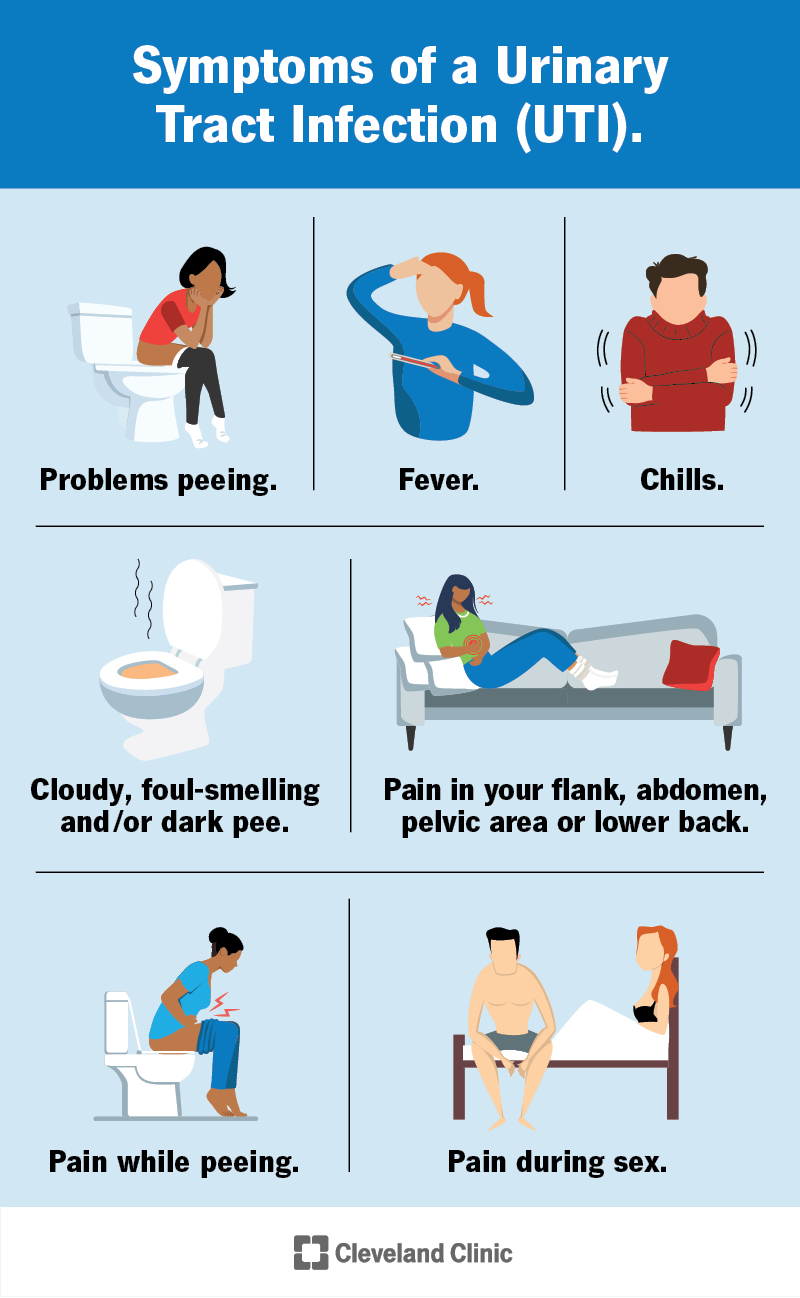Urinary Tract Infection (UTI): Causes, Symptoms & Treatment - Cleveland Clinic

Can I prevent a urinary tract infection?
The following lifestyle changes can help prevent urinary tract infections:
Practice good hygiene
Practicing good hygiene is one of the best ways to help prevent UTIs. This is especially important if you have a vagina because your urethra is much shorter, and it's easier for E. coli to move from your rectum back into your body. Always wipe from front to back after a bowel movement (pooping) to avoid this.
During your menstrual cycle, it's also a good idea to regularly change your period products, including pads and tampons. You should also avoid using any deodorants on your vagina.
Drink plenty of fluids
Drinking extra fluids — especially water — each day can help flush out bacteria from your urinary tract. Healthcare providers recommend drinking six to eight glasses of water daily.
Change your peeing habits
Peeing can play a big role in getting rid of bacteria from your body. Your pee is a waste product, and each time you empty your bladder, you help remove that waste from your body.
Peeing frequently can reduce your risk of developing an infection, especially if you get UTIs a lot.
You should also try to pee right before and right after having sex. Sex can introduce bacteria to your urethra, and peeing before and after sex helps flush it out. If you can't pee, wash the area with warm water.
Change your birth control
Some people have an increased risk of developing a UTI if they use a diaphragm for birth control. Talk to a healthcare provider about other birth control options.
Use a water-based lubricant during sex
If you use lubricant during sex, make sure it's water-based. You should also avoid spermicide if you have frequent UTIs.
Change your clothing
Tight-fitting clothing can create a moist environment, which promotes bacterial growth. You can try loose-fitting clothing and cotton underwear to prevent moisture from accumulating around your urethra.
Medications
If you're postmenopausal, a healthcare provider may suggest a vaginal cream that contains estrogen. These creams may help reduce your risk of developing a UTI by changing the pH of your vagina. Talk to a healthcare provider if you're postmenopausal and get a lot of UTIs.
Over-the-counter (OTC) supplements — including cranberry extract and probiotics — may also help prevent UTIs. Talk to a healthcare provider before you start taking any supplements.
Comments
Post a Comment